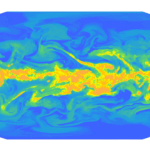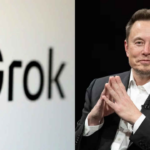The landscape of AI in manufacturing appears to be shifting towards a more integrated approach, emphasizing the importance of alignment over mere visibility. According to industry expert Osolind, current manufacturing plants are inundated with sensor data and reports. However, he argues that the real challenge lies in synchronizing the myriad of factors affecting production, such as throughput, quality, staffing, and costs, which can fluctuate at different rates. He states, “Even small gaps turn into lost margin fast.”
For a platform like Prometheus to be truly effective, it must unify these signals into a coherent decision-making process. Osolind elaborates that this requires a system capable of aggregating sensor readings, operator notes, shift behaviors, and output targets to deliver actionable insights. When operations deviate from established plans, Prometheus should be able to flag these discrepancies and guide teams to implement corrections proactively, preventing losses from spreading across the production line.
Potential for Success
The key question remains: can such a system become a viable business model? Osolind expresses cautious optimism, stating, “Can Bezos pull this off? Probably.” He underlines the advantage of having a leader like Jeff Bezos, who is known for his systems thinking and ability to manage large-scale operations effectively. Bezos’s approach could be pivotal in ensuring that Prometheus maintains operational coherence.
If Prometheus prioritizes operational alignment rather than simply expanding its model size, Osolind believes it could significantly enhance manufacturing performance. He emphasizes that without this focus, investments may not translate into improved margins. “I’d say definitively yes — after all, it’s Bezos — but assembly lines and fate both love humbling billionaires,” he cautions, indicating that even successful leaders face challenges in the manufacturing sector.
The implications of Prometheus and similar AI innovations extend beyond mere efficiency gains. By aligning various operational parameters, manufacturers could potentially see a notable decrease in waste and an increase in profit margins. This could redefine industry standards, making it imperative for competitors to also innovate or risk falling behind. With AI’s ability to analyze vast amounts of data in real time, the manufacturing sector stands on the brink of a technological transformation that could reshape its future.
As the manufacturing industry increasingly integrates AI technologies, the focus on alignment rather than just visibility may very well set the standard for operational excellence. Keeping an eye on developments related to Prometheus and similar platforms will be crucial for industry stakeholders aiming to maintain a competitive edge in this rapidly evolving landscape.
See also Google Launches WeatherNext 2 AI, Delivers 8x Faster and More Accurate Forecasts
Google Launches WeatherNext 2 AI, Delivers 8x Faster and More Accurate Forecasts xAI Launches Grok 4.1 with 64% Preference for Enhanced Speed and Quality
xAI Launches Grok 4.1 with 64% Preference for Enhanced Speed and Quality Rowan Chamber Hosts AI Expert Dr. Lane Freeman at November Power in Partnership Breakfast
Rowan Chamber Hosts AI Expert Dr. Lane Freeman at November Power in Partnership Breakfast Anthropic CEO Dario Amodei Warns AI Could Displace Many Entry-Level Jobs
Anthropic CEO Dario Amodei Warns AI Could Displace Many Entry-Level Jobs




























































